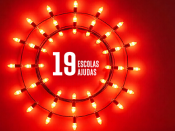Por Cristiana Palmela Pereira (Faculdade de Medicina Dentária da Universidade de Lisboa).
Abstract: The age of a living person which is defined as the time elapsed since the date of birth may sometimes be queried for various reasons. In Portugal, this may happen with children adopted from abroad and refugees who arrived without identification papers. It is the civil rights of a person in a modern society to have a correct date of birth. Unaccompanied asylum seekers under the age of 18 years have the right to be treated as a children or minors. Provision of ethical practice during the age estimation investigation of unaccompanied minors is considered from different aspects: (a) The United Nations convention on children’s rights, about specific rights, protection, support, healthcare and education for unaccompanied minors. (b) Since most forensic age estimation investigations are based on medical examination, the four basic principles of biomedical ethics, namely autonomy, beneficence, non-malevolence, justice. (c) The use of medicine for non-treatment purposes. (d) How age estimates with highest accuracy in age chronological prediction can be obtained. Ethical practice in forensic age estimation of unaccompanied minors is achieved when different but related issues are searched, evaluated, weighted in importance and subsequently combined. This is not always feasible in the forensic practicing. However, the relationship between the research field as statistical and mathematics and forensic sciences, such as forensic odontology, is the best ethical way to perform the most accurate forensic result to the justice.















